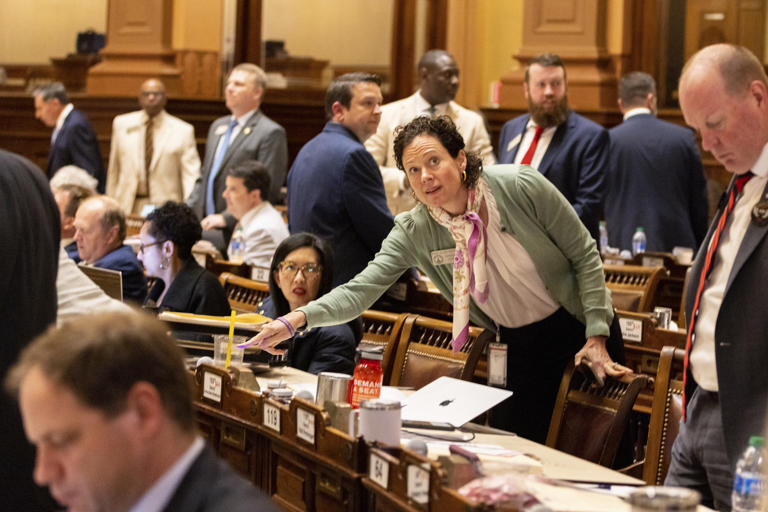Georgia lawmakers on Thursday passed Senate Bill 189, introducing new regulations for voter challenges and presidential ballot qualification, with potential implications for the battleground state’s role in the 2024 presidential race. The bill, approved by the House with a vote of 101 to 73 and the Senate by a vote of 33 to 22, awaits Gov. Brian Kemp’s decision.
Republicans in Georgia have advocated for election changes following allegations of fraud in the 2020 election by former President Donald Trump and other party members. SB 189 includes provisions allowing any political party that has qualified for presidential ballots in at least 20 states or territories to access Georgia’s ballot, potentially benefiting independent candidates like Robert F. Kennedy Jr., raising concerns among Democrats about diverting support from President Joe Biden.
Additionally, the bill outlines criteria for determining “probable cause” in voter eligibility challenges, potentially resulting in voter removals. Probable cause includes instances where individuals are deceased, have voted elsewhere, have registered in another jurisdiction, or are registered at a nonresidential address. Max Burns, Senate Ethics Committee Chairman, emphasized the simplicity of defining probable cause.
However, Democrats criticized the provision, warning of increased unfounded attacks on voters, potentially overwhelming election administrators and disenfranchising individuals. Republican activists in Georgia have challenged over 100,000 voters in recent years, alleging fraudulent registrations, with some large counties facing thousands of challenges at a time.
Democratic Representative Saira Draper of Atlanta denounced the provision as rooted in “lies and fearmongering,” likening it to negotiating with terrorists and advocating for a policy against legislating to appease conspiracy theorists. Ruwa Romman, another Democrat from Duluth, emphasized the erosion of confidence in the U.S. election system, calling for resistance against falsehoods being turned into law.
In defense, Republican Representative Victor Anderson of Cornelia highlighted safeguards within the bill, such as requirements for substantial evidence beyond mere appearance on the USPS national change of address list to sustain a challenge. He also pointed out provisions delaying challenges close to elections, arguing that the bill actually raises the bar for challenging.
Chairman John LaHood, a Republican from Valdosta, asserted that the bill bolsters election confidence by ensuring the significance of legal votes. Additionally, the bill mandates prompt reporting of absentee ballot results after polls close and introduces the use of paper ballots in smaller elections starting in 2025. It also transitions away from using QR codes to count ballots by 2026, aiming to address concerns about voter trust in QR codes.
Lawmakers have already passed bills requiring audits of multiple statewide elections, enhancing ballot security features, restricting poll worker eligibility to U.S. citizens, and reducing the number of voting machines.
